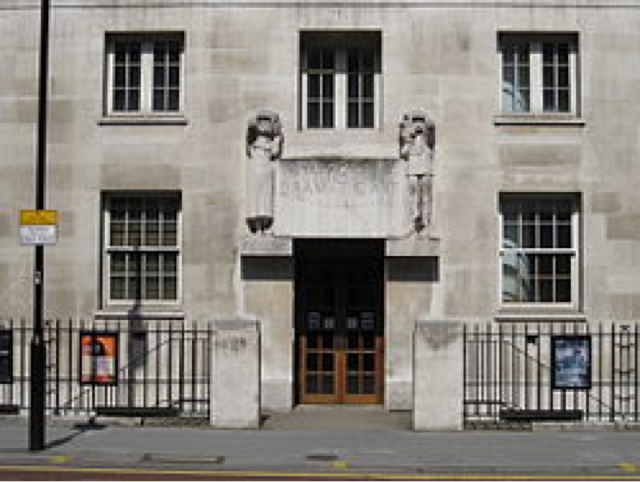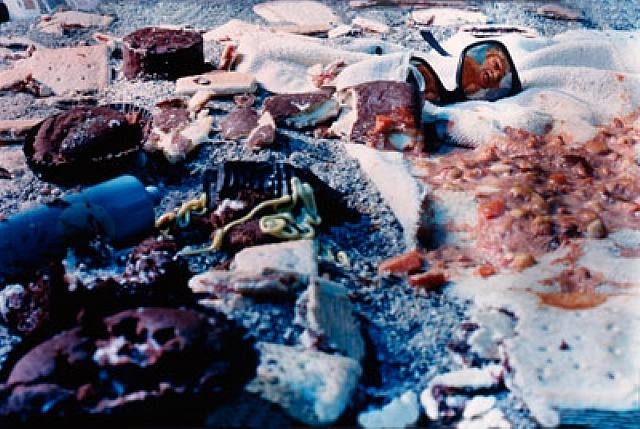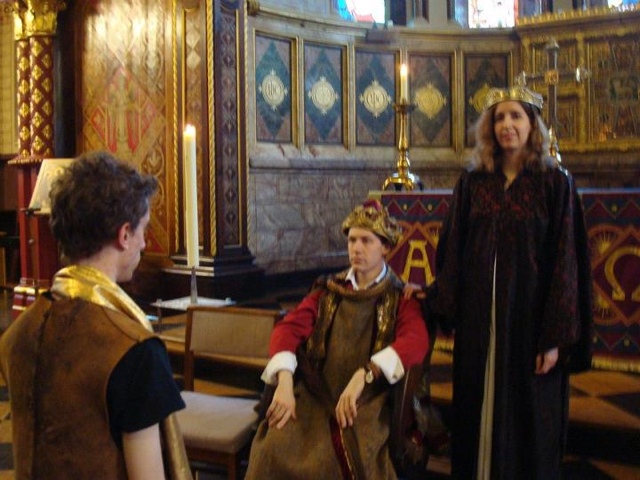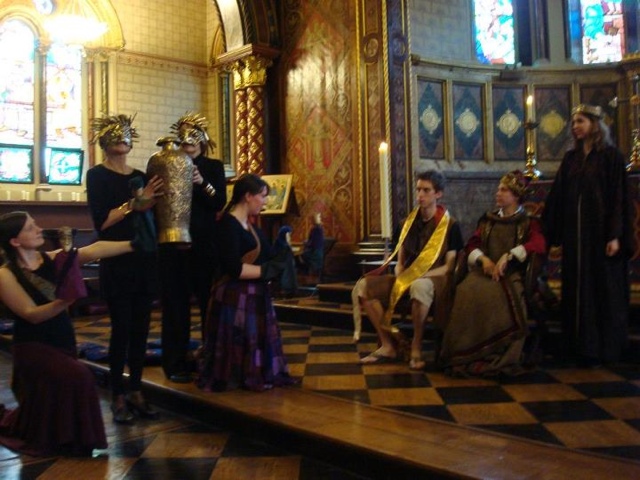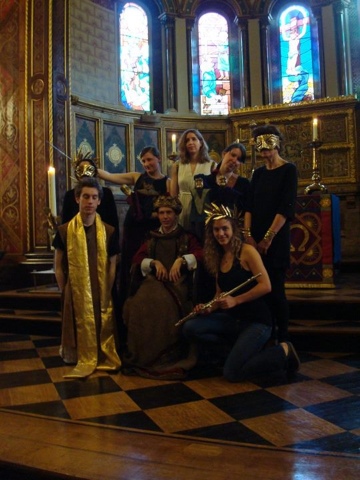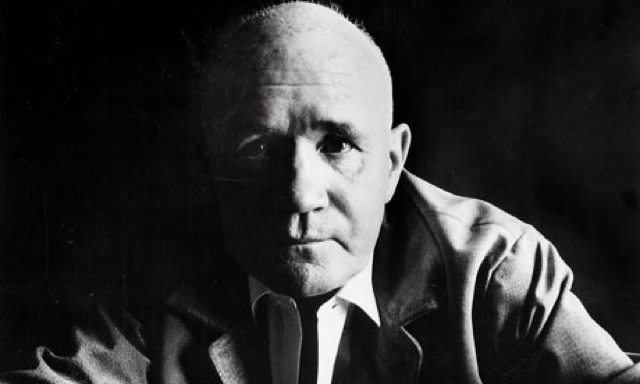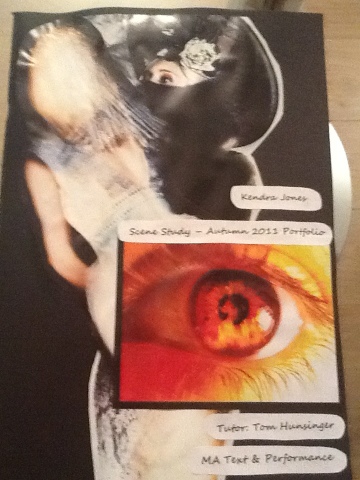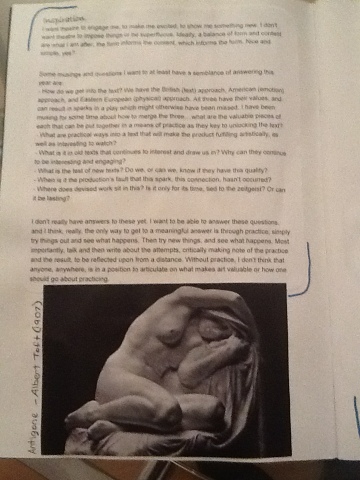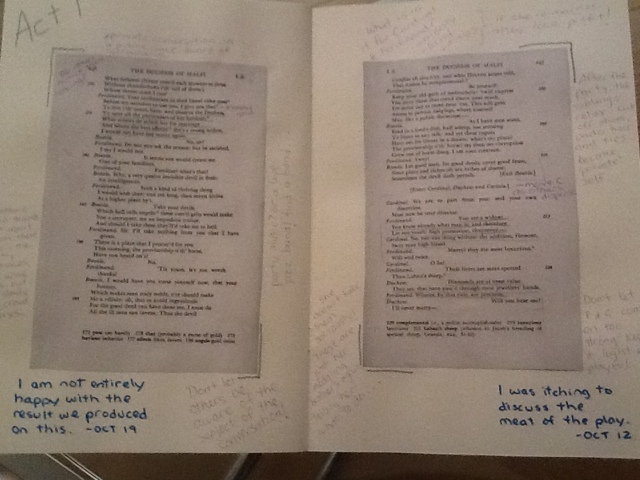I thought now would be an appropriate time to review what has been utterly amazing year personally and artistically. A brief walk through the year's events mentally caused me to pause in wonder at just how much one can accomplish in as short a time as a year.
January - In the throes of the MA, I also took on projects outside the course. Performed with the hit You Me Bum Bum Train in the West End, an immersive theatre project which challenged my own conceptions of audience participation - something I had heretofore loathed - edging me toward a desire to unsettle the audience's cocooned experience of theatre.
February - ceaseless creation ensued, and I was busy writing my first play along with directing and interpreting the work of Jean Genet. Explorations in rehearsal for both impelled me to risk at a greater level in my creative endeavors.
March - a whirlwind, I directed a scene in response to Genet, and performed in 4 others for fellow students on the MA. Had a workshop performance of my own piece of writing Trying, a new sort of out-of-body experience, even more unnerving than directing. Created a performance art installation Autel which showed at RADA to great success. And finally, if that wasn't enough, co-directed Ludus Daniellis in full medieval Latin at King's College, London.
April & May - Dove into research and preparation for my dissertation, as well as rehearsals for the other pieces I was contributing to. Presented my work at a conference of art historians, sharing my creative response to The Duchess of Malfi called Forc'd To Woo.
June - performed in a piece of promenade one-on-one theatre called How We Met, written by colleagues at RADA Eleanor Massie and Holly Bragg. This piece fed into ideas I had already been having for pieces to create at home, and will crop up again in some work commissioned for 2013.
July - Performed and created my own dissertation piece No More Prayers, and also performed for two others - Nil by Mouth by Holly Sharp and Between Sand and Stars by Dena Rysdam-Miller. I have performed and created work under pressure many times in the past, however nothing was comparable to the intensity of this period, absurd attention to detail and aggressive pursuit of clarity in my artistic vision.
August - With the performances completed, I dove into the writing of my final dissertation paper - a 10,000 word artistic statement and critique of my performed work. The process for writing this was arduous, but rewarding overall, as I found it extremely useful to dig through my own creation and defend it in such a rigorous fashion.
September - Directed 4 staged readings for FemFest 2012, having returned to Winnipeg. Had a fabulous re-immersion to the Winnipeg theatre community, also beginning new contracts teaching at Prairie Theatre Exchange School.
October - my performance installation from earlier in the year at RADA, Autel, was selected to be part of a group installation at the Gas Station Arts Centre, running to the first week of January 2013. This was an amazing experience, the first time I had participated in a show in a non-performance based way.
November - finalizing the script for my latest play Dear Mama (which premieres on 17 January 2013) I began developmental work with my director Megan Andres to finalize the script. Also had the opportunity to re-ignite work on a show from 2011 Dionysus is Getting Impatient, which I was part of creating with I was part of creating with Theatre Incarnate.
December - as the best christmas present possible, learned mid-month that I have officially graduated RADA and the University of London with Distinction. If this weren't enough, I had the fabulous opportunity to be part of a reading for Winnipeg's Theatre By the River for their annual holiday fundraiser.
And now for 2013, onward and upward! Dear Mama opens in mid-January, after which I expect to dive into a few other projects not yet mentioned here. I am eternally grateful for the year I have had, and look heartily forward to further opportunity in 2013!
January - In the throes of the MA, I also took on projects outside the course. Performed with the hit You Me Bum Bum Train in the West End, an immersive theatre project which challenged my own conceptions of audience participation - something I had heretofore loathed - edging me toward a desire to unsettle the audience's cocooned experience of theatre.
February - ceaseless creation ensued, and I was busy writing my first play along with directing and interpreting the work of Jean Genet. Explorations in rehearsal for both impelled me to risk at a greater level in my creative endeavors.
March - a whirlwind, I directed a scene in response to Genet, and performed in 4 others for fellow students on the MA. Had a workshop performance of my own piece of writing Trying, a new sort of out-of-body experience, even more unnerving than directing. Created a performance art installation Autel which showed at RADA to great success. And finally, if that wasn't enough, co-directed Ludus Daniellis in full medieval Latin at King's College, London.
April & May - Dove into research and preparation for my dissertation, as well as rehearsals for the other pieces I was contributing to. Presented my work at a conference of art historians, sharing my creative response to The Duchess of Malfi called Forc'd To Woo.
June - performed in a piece of promenade one-on-one theatre called How We Met, written by colleagues at RADA Eleanor Massie and Holly Bragg. This piece fed into ideas I had already been having for pieces to create at home, and will crop up again in some work commissioned for 2013.
July - Performed and created my own dissertation piece No More Prayers, and also performed for two others - Nil by Mouth by Holly Sharp and Between Sand and Stars by Dena Rysdam-Miller. I have performed and created work under pressure many times in the past, however nothing was comparable to the intensity of this period, absurd attention to detail and aggressive pursuit of clarity in my artistic vision.
August - With the performances completed, I dove into the writing of my final dissertation paper - a 10,000 word artistic statement and critique of my performed work. The process for writing this was arduous, but rewarding overall, as I found it extremely useful to dig through my own creation and defend it in such a rigorous fashion.
September - Directed 4 staged readings for FemFest 2012, having returned to Winnipeg. Had a fabulous re-immersion to the Winnipeg theatre community, also beginning new contracts teaching at Prairie Theatre Exchange School.
October - my performance installation from earlier in the year at RADA, Autel, was selected to be part of a group installation at the Gas Station Arts Centre, running to the first week of January 2013. This was an amazing experience, the first time I had participated in a show in a non-performance based way.
November - finalizing the script for my latest play Dear Mama (which premieres on 17 January 2013) I began developmental work with my director Megan Andres to finalize the script. Also had the opportunity to re-ignite work on a show from 2011 Dionysus is Getting Impatient, which I was part of creating with I was part of creating with Theatre Incarnate.
December - as the best christmas present possible, learned mid-month that I have officially graduated RADA and the University of London with Distinction. If this weren't enough, I had the fabulous opportunity to be part of a reading for Winnipeg's Theatre By the River for their annual holiday fundraiser.
And now for 2013, onward and upward! Dear Mama opens in mid-January, after which I expect to dive into a few other projects not yet mentioned here. I am eternally grateful for the year I have had, and look heartily forward to further opportunity in 2013!

